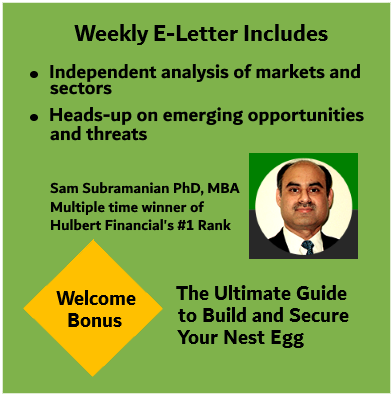Exchange-traded funds and mutual funds have their advantages and disadvantages.
While investors often ponder if they should invest in ETFs or mutual funds, there is no reason to.
Investors can use ETFs as well as mutual funds in appropriate ways to benefit from the advantages of both.
ETF Advantages
- Transparency: ETFs usually disclose their holdings each day, making it easy for investors to know what they are investing in.
- Trading flexibility: Investors can buy & sell ETFs through the day whenever the stock market is open.
- Management expense: ETF expense ratios tend to be lower than mutual fund expense ratios.
- Tax efficiency: The structure of ETFs may lend themselves to be more tax efficient.
Mutual Fund Advantages
- Active security selection: Mutual funds can benefit from in-depth research & analysis conducted by money managers to uncover investments with superior risk-adjusted return.
- Periodic investing: Mutual funds make it easy for investors to invest small amounts without commissions at regular intervals through automatic investment plans.
- Trading costs: Many no load mutual funds are available without transaction fees in mutual fund networks like Fidelity FundsNetwork or Schwab OneSource.
Invest in ETFs and Mutual Funds to Maximize Benefits
All too often, investors make a mistake by focusing on pre-tax return when comparing investments.
It is difficult to predict with any degree of certainty which of the two … a particular ETF or a comparable mutual fund … would deliver a higher pre-tax return during its holding period.
Investors would be better off focusing on predictable factors like total cost of owning investments and taxes on an account-specific basis as this can improve the odds of maximizing return.
Generally, mutual funds are better suited for smaller-sized accounts while ETFs are better suited for larger-sized accounts.
ETFs are better suited for accounts with a trading objective. Many mutual funds impose penalties or place restrictions to discourage frequent trading.
ETFs are more appropriate for taxable accounts where investors can realize the tax efficiency benefit of ETFs. Mutual funds on the other hand are better suited for tax-deferred accounts.
In sum, one does not have to avoid ETFs simply because one invests in mutual funds and vice versa. Investors have the option of investing in both ETFs and mutual funds. Investors can maximize benefits by including both ETFs and mutual funds in appropriate accounts considering size, investment objective, and tax status.

 Sick buying high & selling low? Fed up of the fees you pay? Tired researching investments? End your financial pain now. You have the opportunity to
Sick buying high & selling low? Fed up of the fees you pay? Tired researching investments? End your financial pain now. You have the opportunity to 

 DEC. 1993 to DEC. 2023
DEC. 1993 to DEC. 2023





